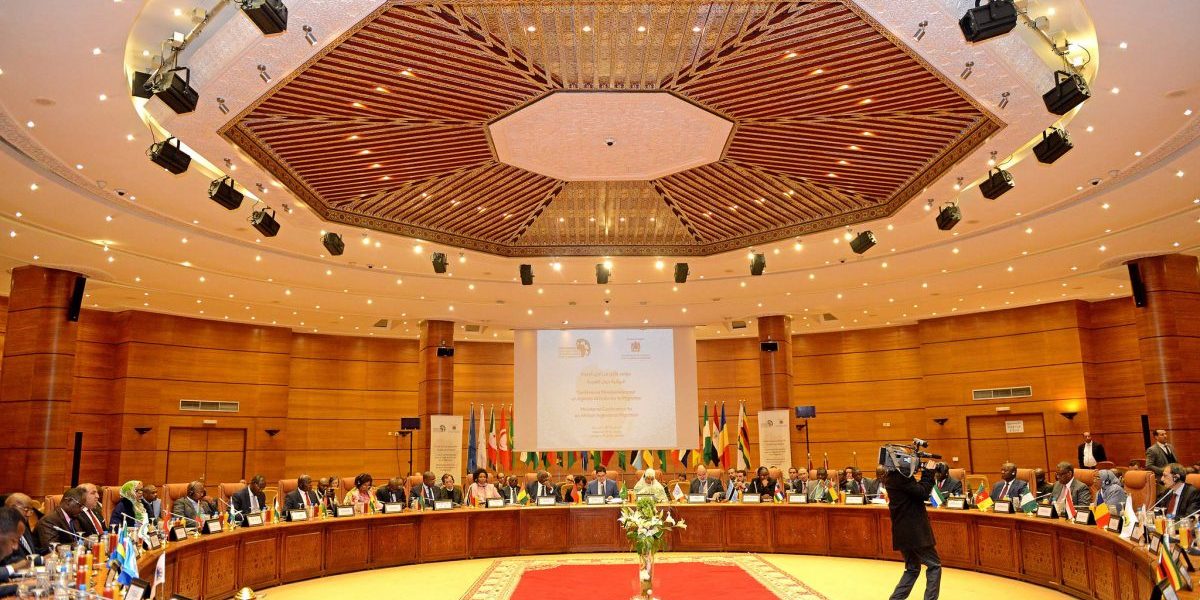What were the leaders of Africa thinking about when they elected President Teodoro Obiang Nguema of Equatorial Guinea as incoming AU President? We are told that a mechanical rotation of the presidency through the various regions of Africa is observed. It was Central Africa’s turn and the best the Central African region could come up with was Obiang. No consideration was given to the international impact such an appointment would have.
Obiang is the second longest serving head of state in Africa, behind Muammar Qaddafi, but a short step head in front of Robert Mugabe.
In 1979 Obiang overthrew his kinsman, Francisco Macías Nguema, who is remembered for his bloody repression of the people of his country, which led to the death of 80 000 and caused a third of them to flee the country.
While it was the good fortune of the new president and now chairman of the African Union that large oil reserves were discovered in his country in 1984, the benefits from the exploitation of those riches have little impacted on the lives of his citizens. While statistically Equatorial Guinea has one of the highest per capita incomes in Africa, indeed of the world, at US$37900, eighty percent of them still live on less than US$2 a day, the UN’s poverty line. The control of the wealth remains in the hands of the coterie that surrounds the president.
Rather than improve the lot of his impoverished people, Obiangseems intent on burnishing his own international image by holding international conferences, including one in Cape Town, for his own aggrandisement and offering UNESCO $3 million to fund the Obiang Nguema Mbasogo International Prize for Research in the Life Sciences. Not surprisingly UNESCO demurred. And none of his promises of political reform and openness on the accounts for the country’s oil revenues has materialised.
In spite of its wealth and the willingness of its president to dispense largesse, ostensibly to burnish his image, Equatorial Guinea remains a minor contributor to the budget of the AU.
But none of this deterred African presidents from electing Obiang, who bears all the hallmarks that the world believes characterises the stereotypical African leader.
At its recent session, as commentators have noted with shock and surprise, the AU summit spent little time reflecting on the crisis besetting Egypt and affecting other North African members of the Union. Few if any of the leaders of those countries attended the Summit because of the violent turmoil that had already unseated President Ben Ali of Tunisia, and was threatening to spill over from Egypt to Algeria, Sudan and even Libya.
While the on-going street protests in Egypt have led to some changes in the leadership structure of that country, with the appointment by President Mubarak of a vice president and prime minister and a promise that he will not stand in the forthcoming presidential election, the final outcome and the impact not only on African countries and on the Middle East are far from clear. A first round of discussions with all interested political formations, including the Muslim Brotherhood took place at the week-end. It remains to be seen whether this mollifies the protesters and whether they are able to sustain their street demonstrations as the country’s economy and the situation of individual workers further deteriorates.
Against this background comments to the media by the Dr Ayanda Ntsaluba, director-general of the Department of International Relations and Co-operation, make interesting reading. With a frankness that is reminiscent of Wikileaks, Ntsaluba told the Mail and Guardian last week that there was no point in Egypt even pretending that the status quo could be maintained.
He also alluded to the competition by Egypt with South Africa. (I can personally attest to this jealousy, experienced during an earlier period in my career. At that time it concerned whether Egypt or South Africa should occupy the permanent seat on the board of the International Atomic Energy Agency, why Egypt had not been invited to join IBSA, a request to join SADC, and a constant obsession with “what is South Africa doing now?” )
In a subsequent interview with The Sunday Independent, Ntsaluba reverted to the conventional African line that it was not for South Africa to interfere in the affairs of other African countries.
In spite of Ntsaluba’s statement, the AU has to take note of and deal with the turmoil and uncertainty in many areas of our continent. It would therefore have been wise for African leaders to choose a chairman of the African Union that could give strong leadership and project an image of Africa that is in line with the AU’s objectives of promoting peace and democracy on the continent.








